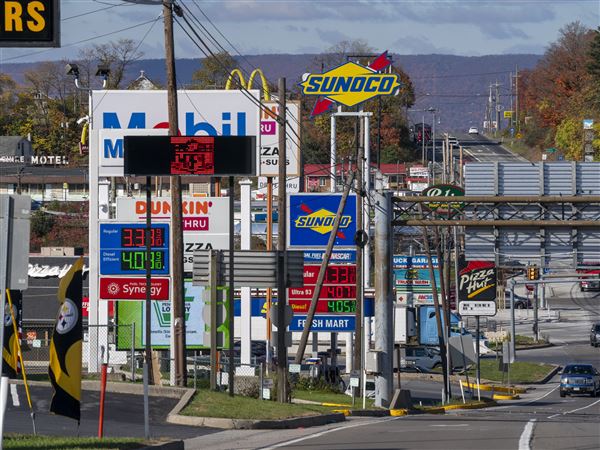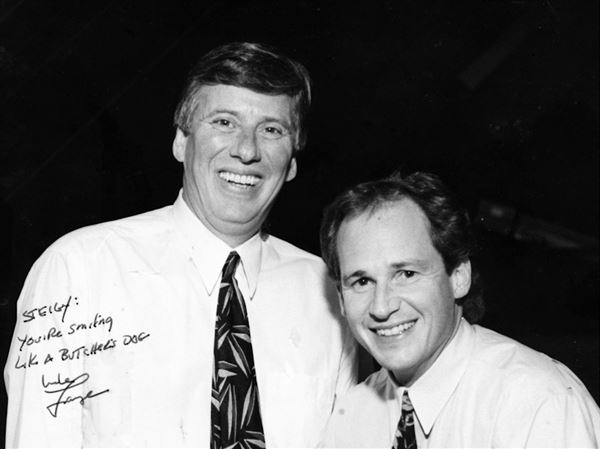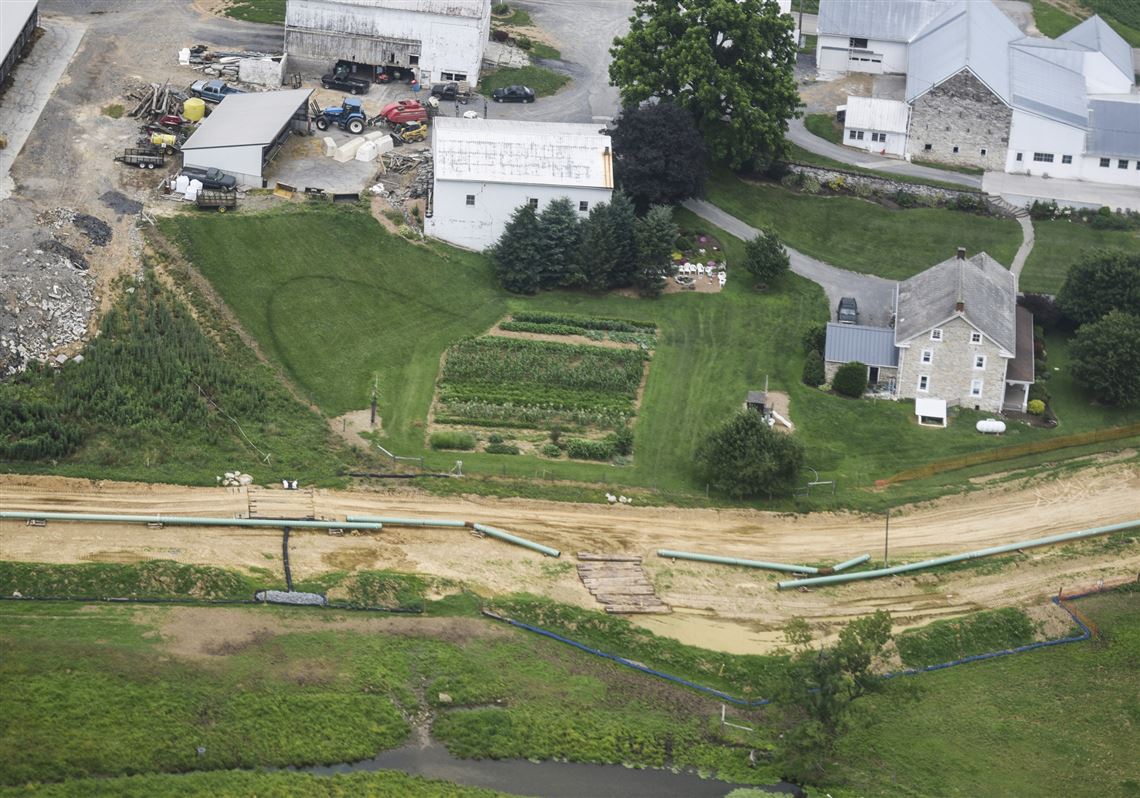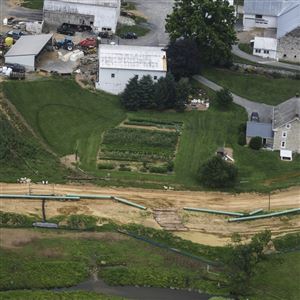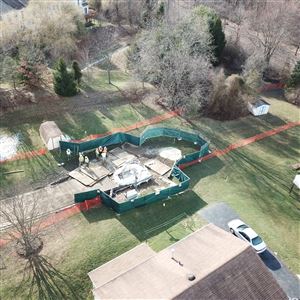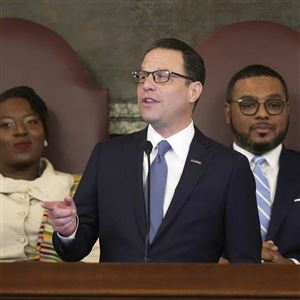Sinkholes, contaminated water wells, and Sunoco’s alleged poor judgment have convinced an administrative law judge to suspend the flow of natural gas liquids on the company’s Mariner East 1 pipeline and prevent any further construction of its Mariner East 2 pipelines in West Whiteland Township, Chester County, until further study.
In a scathing decision, Pennsylvania Public Utility Commission judge Elizabeth Barnes took the company to task for making “deliberate managerial decisions to proceed in what appears to be a rushed manner in an apparent prioritization of profit over the best engineering practices available in our time that might best ensure public safety.”
Sunoco’s parent company, Energy Transfer Partners, charged that the decision was based on “conjecture or extrajudicial claims,” rather than evidence and due process.
“The entire energy industry should be concerned about today’s order and consider this result when making decisions regarding future capital investments in the state as it upends Pennsylvania’s entire regulatory environment,” the company’s statement declared.
The order came in response to a petition filed by Pa. Sen. Andy Dinniman last month. The Chester County Democrat has been a vocal critic of Sunoco and the project.
Sunoco is building two pipelines to carry natural gas liquids from Western Pennsylvania to a refinery in the Philadelphia area.
A company representative testified earlier this month that the Mariner East 2 pipeline is nearly done and needs only 20 more miles of its 350 mile trajectory to be completed. Mariner East 2X will follow the same route.
Sunoco told analysts recently that it expects the first pipeline to be operational toward the end of the third quarter, while ME2X is expected to come online in mid-2019. The company said on Thursday it doesn’t expect those deadlines to change.
Meanwhile, the company operates a 1930s vintage pipeline, Mariner East 1, along the same right of way that has been repurposed to ferry natural gas liquids.
In March, a series of sinkholes caused by the construction of the new pipelines prompted the Pennsylvania PUC to suspend operation of Mariner East 1 after portions of that pipeline were exposed when the soil around it was disturbed. The shutdown had a $6 million impact on the company’s earnings during March, Sunoco officials told analysts during a recent earnings call, and advised that a similar loss was expected for the month of April.
The company was allowed to resume the flow through the Mariner East 1 pipeline earlier this month after the PUC was satisfied that integrity tests showed the exposed pipeline had not been impacted.
Mariner East 2 construction had also been suspended for periods of time by the Pennsylvania Department of Environmental Protection, which fined the company $12.6 million for violations earlier this year.
Judge Barnes’s decision drew on Sunoco’s record of construction and operational mishaps in Pennsylvania and beyond.
She noted an incident in Texas two years ago when Sunoco was found to have used untested/unqualified welders in the construction of a new pipeline which subsequently failed.
In Pennsylvania, she charged, the company failed to notice and report three leaks from the Mariner East 1 pipeline within the past year, “all in high consequence areas.”
In legal filings over the past few weeks, Sunoco has disputed the validity and relevance of nearly everything that Judge Barnes used to justify her verdict.
“Pennsylvania law is clear — past conduct or harm cannot form the basis for injunctive relief,” Sunoco’s lawyers argued, responding to Mr. Dinniman’s petition for an immediate halt to activity in West Whiteland Township while the court evaluates his broader complaint about the pipelines.
Judge Barnes also found Sunoco’s efforts to educate emergency responders and the community lacking.
“Two large school districts have asked Gov. (Tom) Wolf what to do in an emergency,” she wrote. “Residents request specific instructions, but only receive boilerplate general information. Chester County Emergency Services requested an emergency management plan and this request has not been fulfilled.”
Sunoco, in turn, said in filings that it trained more than 2,000 first responders and public officials during 16 meetings last year, including those in Chester County.
Throughout its comments, Sunoco emphasized what it felt was the most powerful rebuttal: that by granting the company permission to restart Mariner East 1 in early May, the PUC’s enforcement staff found the pipeline to be safe.
As for ME2 construction, a Sunoco geologist testified, “No further sinkholes will develop from the construction remaining in West Whiteland Township.”
In a lengthy rebuke of Sen. Dinniman’s petition, Sunoco painted the politician and his witnesses as lay people who could not appreciate the technical work that Sunoco and the PUC staff had done to ensure safety.
The company also warned of wage losses, as pipeliners are unable to work and financial losses at natural gas companies, such as Range Resources, that will once again lose a conduit for their product.
Construction unions, oil and gas companies, and industry groups showed up to support Sunoco in this matter, while several environmental groups joined Sen. Dinniman in his plight.
Judge Barnes was clearly more swayed by the latter.
“The public needs protection from sinkholes, water contamination, damage to public and private property, degradation of natural resources, physical injury and death,” she wrote. “It would be injurious to the public to not slow down this project.”
The judge also rejected Sunoco’s request that Sen. Dinniman should be obligated to post bonds totalling $192 million for the losses that Sunoco would incur during the shutdown if an injunction is granted.
Sunoco promised it would file an appeal in the next week asking the PUC to overturn this decision.
PUC spokesperson Nils Hagen-Frederiksen declined to give the agency’s position on the order, saying only, “The commission has encouraged individuals and organizations with concerns related to the Mariner pipelines to file their own formal complaints or intervene in existing complaints.”
“Today’s order,” he said, “is the result of the exact process highlighted by the commission, which allows citizens to have their voices heard.”
Anya Litvak: alitvak@post-gazette.com or 412-263-1455.
Updated at 5:10 p.m. May 24, 2018.
First Published: May 24, 2018, 3:58 p.m.
